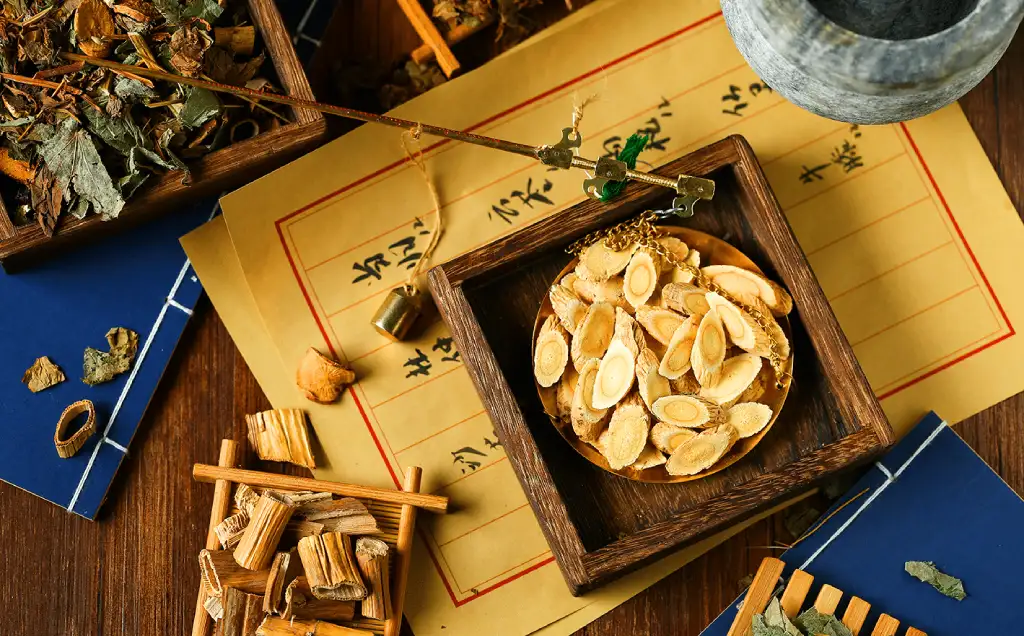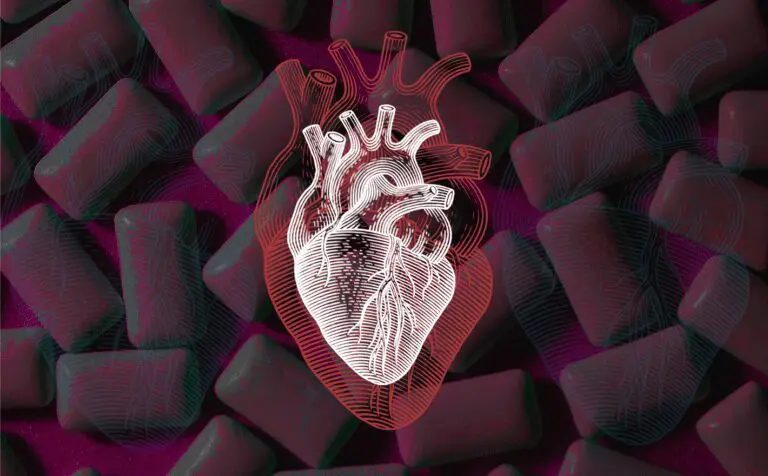I’ve always loved Astragalus membranaceus because of the way that it represents the perfect overlap of immune-builder and adaptogen, something that’s fairly rare in the world of herbology.
Yes, tonics like ginseng, rhodiola, and shilajit certainly have positive effects on the immune system, but not remotely at the same level that astragalus does. Immune-enhancing herbs like andrographis, elderberry, and cat’s claw are excellent at what they do, but don’t offer the same kind of multi-system array of benefits that an adaptogen like astragalus can.
Astragalus is the best of both worlds, a true immuno-adaptogen.
When I first learned about it while studying Acupuncture and Chinese Medicine over ten years ago, I came to know this beautiful plant as Huang Qi, a name that struck me as somehow elegant. Another thing that always struck me about this plant was its flavor.
Unlike so many other herbs, astragalus root is delicious. As a medical herbalist who has tasted hundreds of different plant medicines (many of which are disgusting by normal standards), I can tell you that an herb that enhances immunity and tastes this good is extremely hard to come by, as many immune boosters are on the bitter end of the spectrum.
I’ve made formulas for patients that were so unpalatable that they looked like wanted to punch me after they tasted them, but never because astragalus was in there.
In fact, astragalus tastes so good that you can put into soups, which is something the Chinese have been doing for thousands of years. It’s tan-gold roots impart a sweet and subtly savory quality to any dish. In fact, I made some veggie soup with astragalus recently and it was a hit.
It’s important to understand that within traditional herbal medicine, the flavors of herbs reflect their properties. For example, bitter herbs are considered cold-natured and are often helpful to support healthy inflammation response, while spicier, warming herbs are often helpful for enhancing circulation and removing stagnation from the body.
Astragalus has been pigeonholed as an immune herb, but its effects are far more wide-ranging, something that’s confirmed by its flavor profile. In Traditional Chinese Medicine, sweet is a flavor that often means: “this herb strengthens multiple systems in the body, and especially supports energy and digestion.”
Immunity and Healthy White Blood Cell Production
Chinese medicine uses astragalus in dozens of its classical formulas, many of which are geared toward immunity. Various studies have elucidated its mechanisms of action, some in humans and some in mice.
In a human study that compared astragalus to echinacea and licorice, it was found to enhance expression of a receptor called CD69 on the surface of white blood cells, something which is used as in indication of immune cell activation. In other words, astragalus extract was able to stimulate white blood cells (it also outperformed the other herbs in this regard).
Interestingly, this effect occurred within 24 hours of ingestion and lasted for over 7 days, showing that sometimes even a single dose can make a big difference.
In another human study, it was able to improve the ratio of CD4+ to CD8+ cells, which is a general marker of immune function (studies on Tongkat Ali have shown similar effects). Lung function was also enhanced, measured as forced expiratory volume (how large of a volume of air one can exhale).
A 2007 study found that astragalus was able to increase the activity of macrophages (the cells that engulf pathogens and damaged tissues) as well an immune function marker called lymphocyte blastogenic response. In older mice, it restored these values to those which are typically found in younger mice, leading the authors to conclude that astragalus is an ‘immunorestorative’ herb.
In an in vitro study that used rat bone marrow tissue, astragalus increased the maturation of dendritic cells, which are critical immune cells that take foreign materials (antigens) and present them to white blood cells, helping them accurately target pathogens.
Mitochondrial Energy Production and Antioxidant Protection
Perhaps one of the hottest topics among natural health enthusiasts these days, mitochondrial function is everything when it comes to supporting a healthy cardiovascular system, physical endurance, and optimal cognitive function—as the muscles, brain, and heart all have an exquisitely high energy demand.
Many natural compounds have been found to enhance mitochondrial energy production through various mechanisms. Shilajit—for example—enhances the bioavailability of CoQ10, while the bioflavonoid quercetin increases mitochondrial biogenesis (meaning that it stimulates the cell to manufacture more mitochondria).
The challenges to mitochondrial health are vast. It’s important to know also that there are hundreds of mitochondrial poisons circulating in the environment, including heavy metals, pesticides, and various mitotoxic pharmaceuticals. In order to work correctly, mitochondria also require a number of different vitamins, minerals, and antioxidants, several of which many Americans are deficient in (including magnesium, B12, and glutathione).
In Traditional Chinese Medicine, astragalus has always been utilized to enhance vitality, often used alongside other adaptogenic treasures such as ginseng for those who need a boost. Now, after such a long history of traditional use, the underlying biochemistry is finally being explored.
Several studies have shown that astragalus enhances mitochondrial function, partially by stimulating the production of antioxidants that the mitochondria rely on for efficient energy production.
One study on mice showed that astragalus was able to enhance physical endurance, reduce oxidative stress by stimulating the production of the antioxidants glutathione peroxidase and superoxide dismutase (SOD), and enhance mitochondrial energy production by inducing AMPK and Sirt1, enzymes that are involved in the regulation of mitochondrial biogenesis.
Another study showed similar effects, measuring increases in glutathione peroxidase, SOD, and catalase (CAT). Astragalus was also able to inhibit mitochondrial destruction when challenged by calcium overload, proving that it can protect these producers of cellular energy from certain toxic insults.
Finally, there is evidence that astragalus can enhance autophagy, the process by which cells are able to break down and recycle their own components (the term literally means ‘self-eating’). Since Japanese biologist Yoshinori Oshumi won the Nobel prize for his discovery of autophagy in 2016, interest in the topic has grown dramatically, as it can impact a wide range of physiological processes in the body.
In a 2019 paper on astragalus and autophagy, the authors outline multiple mechanisms by which the herb can support cellular recycling and therefore enhanced energy efficiency and overall functionality.

Cardiovascular Health and Nitric Oxide (NO) Production
Because the heart has a particularly high energy demand, herbs that support mitochondrial energy production also tend to support cardiovascular health, and astragalus is no exception.
A 2005 study on human volunteers showed increased cardiac output (Left Ventricular Ejection Fraction) in those who were given astragalus, as well as healthier levels of inflammatory cytokines such as TNF alpha and IL-6.
Another study that used isolated Astragaloside IV—one of the most important bioactive compounds in astragalus—determined that it was able to protect heart cells in rats from damage to ischemia (lack of blood supply). Astragaloside IV has also been shown to enhance nitric oxide (NO) production, as this study was able to reverse its cardioprotective effects with a nitric oxide blocker.
When it comes to circulatory health, NO is crucial, as healthy levels are essential to ensure that our blood vessels are properly dilated and thus allowing proper blood flow to occur. NO is also essential for immune function.
Digestive Function and Blood Sugar Regulation
Another indication of astragalus in Chinese Medicine is to support digestive function, as it’s said to enhance the body’s ability to break down and absorb nutrients from food. It’s also commonly used to promote tissue regeneration.
Astragaloside II, another of astragalus’ bioactive molecules, has been shown in research to support healthy repair of gut tissue. In this study, researchers observed increased healing of intestinal epithelial cells as well as increased absorption of the amino acid L-arginine (by enhancing the expression of cationic amino acid transporter 1).
In another study, astragalus extract facilitated increased gut repair when challenged by LPS, a compound that causes damage to the intestines. It was also able to support healthy levels of various inflammatory cytokines, such as TNF alpha and IL-1B.
Astragalus has also been shown to support blood sugar health in multiple studies, which shouldn’t be a surprise when one takes into account the close relationship between mitochondrial function and glucose regulation.
A literature review of astragalus’ effects on blood sugar has outlined a variety of mechanisms by which it can promote healthy glucose levels.
According to the authors of the paper, astragalus can:
- Promote healthy insulin sensitivity by activating insulin receptors
- Enhance antioxidant protection of pancreatic beta cells (the cells that produce insulin)
- Support healthy inflammation response within the pancreas
- Induce expression of glucose transporter type 4 (GLUT-4), a protein that helps shuttle glucose into the muscles where it can be burned
- Activate PPAR-alpha, which regulates metabolism of both glucose and lipids (excess fatty acids in the blood and cells can lead to insulin dysfunction)
Healthy Bone Metabolism
As we’ve already talked about in the immune section, astragalus is known to be active in bone tissue as it has the ability to support immune cell health within bone marrow. According to some preliminary research, it may also support healthy bone formation.
Astragaloside II—the same saponin that is responsible for some of astragalus’ positive effects on the GI tract—is also helpful for bone metabolism. The phytochemical was shown in this in vitro study to activate proteins responsible for healthy bone formation.
Although these effects have not yet been researched in humans, multiple studies on rats have demonstrated astragalus’ osteogenic effects. One study measured dental bone formation, while another study looked at the femurs and tibias of calcium-deficient rats (both studies showed significant benefits).
Considering that a healthy inflammation response is crucial for bone health and that astragalus excels in this area, it’s not surprising that it’s able to benefit this type of tissue.
Astragalus (and Adaptogens!) FTW
If you’re looking to thrive during challenging times, then adaptogens are ESSENTIAL. Trust me, you want them in your life.
While many plants in this category, herbs like rhodiola and ashwagandha, are especially effective for mood and stress, immunity and energy are the two areas where astragalus really shines. If these are your main concerns, then astragalus may be the ideal way to kill two birds with one stone.
Due to its versatility, and the way it can support the immune system through so many different avenues, it should be at the top of your list right now. I love this herb, which is why I made sure to put two different kinds of standardized astragalus extract in CHOQ Armor (as both Astragin® and Astracare™).
Lastly, if you have the chance, make some soup with it and impress your friends and family with all your newfound knowledge about this delicious adaptogenic treasure from the East.






